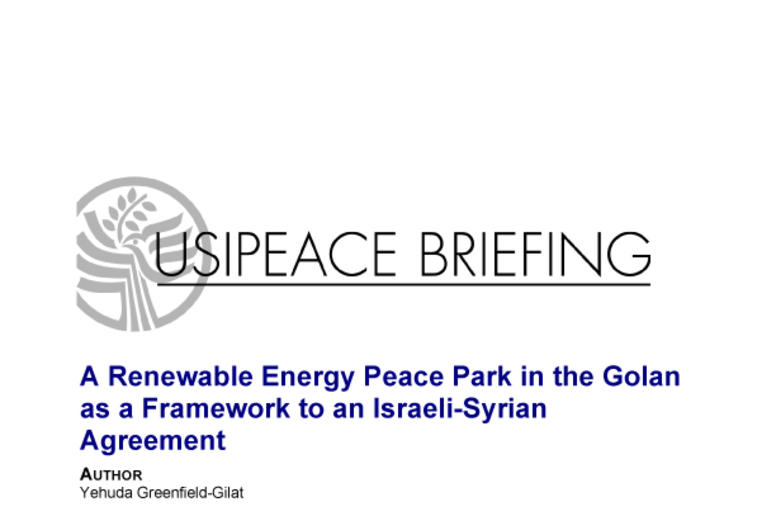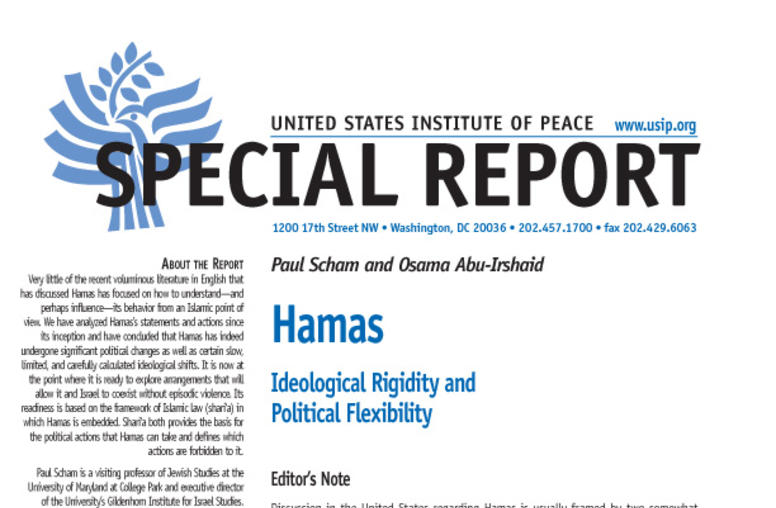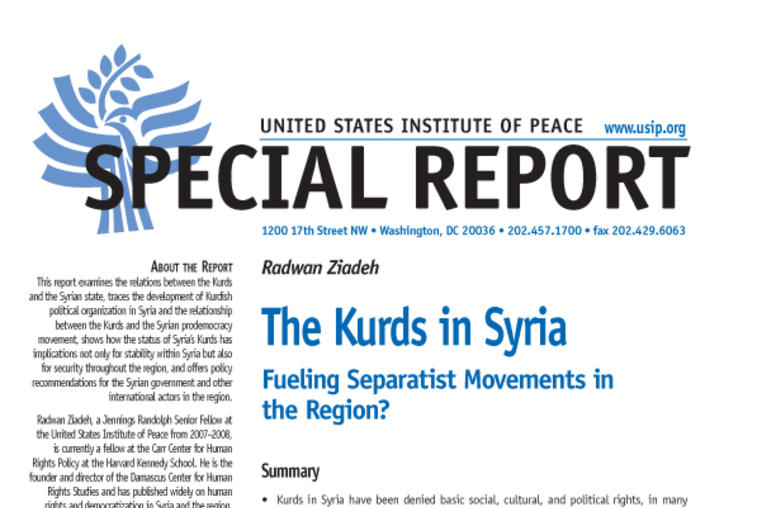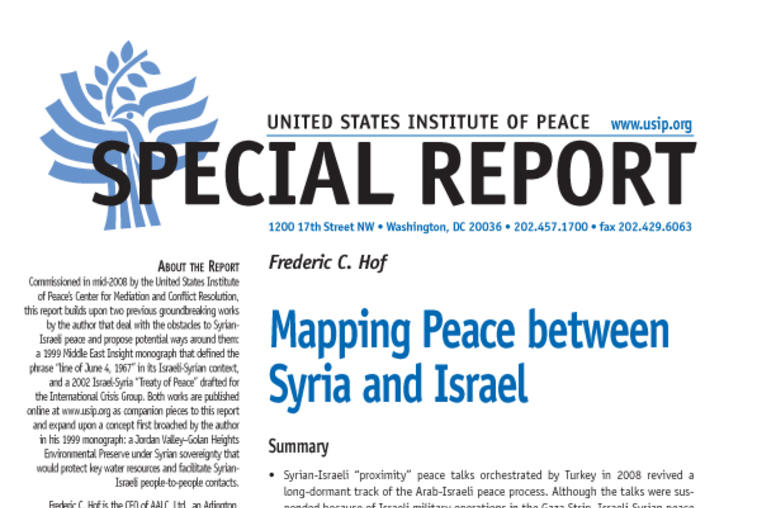Publications
Articles, publications, books, tools and multimedia features from the U.S. Institute of Peace provide the latest news, analysis, research findings, practitioner guides and reports, all related to the conflict zones and issues that are at the center of the Institute’s work to prevent and reduce violent conflict.

A Renewable Energy Peace Park in the Golan as a Framework to an Israeli-Syrian Agreement
The widely discussed Syrian-Israeli peace park concept is rooted in the assumption that Syrian and Israeli "good will" for cooperation is sufficient to mobilize a long- lasting, firm peace treaty between the two countries. The current discussions on a layout for a peace park provide a description of the mechanisms that will control and maintain the park, but fail to provide the insights for how to keep these mechanisms functioning in one, five or ten years into the future.
Lebanon's Parliamentary Elections
Lebanon's pro-Western bloc, known as the "March 14" coalition, will retain control of the country's government despite a strong challenge from a Hezbollah-dominated alliance, according to results from the June 7 parliamentary elections. USIP's Mona Yacoubian examines the electoral results, and what they suggest about support for Hezbollah, and the country's future direction.
Lebanon’s Parliamentary Elections:
The June 7th parliamentary elections mark another important step in Lebanon’s postcivil war transition. The Cedar Revolution opened a new chapter in Lebanese history, inaugurating the end of outright Syrian hegemony. The mass protest movement mobilized following the February 14, 2005, assassination of former Prime Minister Rafiq Hariri forced the Syrian military to withdraw in April 2005 after thirty years of occupation.

Hamas: Ideological Rigidity and Political Flexibility
Hamas's landslide victory in the Palestinian parliamentary elections of January 2006 came as an unwelcome and unexpected shock to both Middle Eastern and international regimes, with the organization winning nearly 58 percent of the Palestinian Legislative Council seats. The United States, a number of European nations, and Israel had all issued clear warnings before the elections that they would not deal with a Palestinian Authority led by Hamas.
Congressional Commission on the Strategic Posture of the United States
The bipartisan commission, facilitated by USIP from 2008-2009, was tasked by Congress to "examine and make recommendations with respect to the long-term strategic posture of the United States." The Commission issued its final report to Congress on May 6, 2009.
Won’t You Be My Neighbor: Syria, Iraq and the Changing Strategic Context in the Middle East
Overall, Syria has marginally benefited from the war in Iraq at both the regional and international levels. After watching the U.S. military unseat the Baathist regime next door in 2003 with unprecedented speed, it looked to many observers—including some in Damascus—as if Syria would be next in line.

The Kurds in Syria: Fueling Separatist Movements in the Region?
The Kurds of Syria, in contrast to the Kurds of Iraq and Turkey, are little known in the West, but they have similarly strained relations with the state that governs them and face human rights abuses as a minority. The Syrian state’s repression of its Kurdish population, which thus far has not sought a separate state, may contribute to Kurdish claims for self-determination in Turkey, Iran, and Iraq.

Mapping Peace between Syria and Israel
Although the Palestinian-Israeli “track” of the Arab-Israeli dispute remains at the heart of the conflict between Israel and its neighbors, the very complexity of that track (Jerusalem, refugees, borders, etc.) has led some to consider the Israeli-Syrian track to be relatively simple and straightforward. While simple it is not and straightforward it is only in relative terms, the Syrian-Israeli conflict can indeed be settled without prejudice to the central act of the Arab-Israeli drama.
On the Issues: Syria
The recent war in Gaza has again underscored the tensions involved in brokering sustainable peace in the Middle East. USIP has actively explored the critical role neighboring countries in the Middle East play in the success of creating peace throughout the region. In this "On the Issues," USIP presents a collection of resources and tools about the role of Syria in peacebuilding efforts. Building upon the foundation started in 2005 with the Syrian Working Group, USIP has held a number of recen...
Iraq, its Neighbors, and the Obama Administration: Syrian and Saudi Perspectives
Since 2004, USIP's "Iraq and its Neighbors" initiative has sponsored track II dialogues and ongoing research on relations between Iraq and its six immediate neighbors. As part of this work, the Institute--in partnership with the Stimson Center--sponsored a bipartisan, independent, and unofficial Study Mission to Syria and Saudi Arabia in mid-January 2009. The delegation met with a wide variety of leading political figures, businesspeople, NGOs and foreign policy experts in both countries, inc...